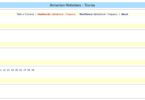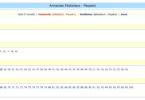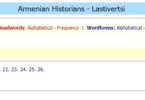Summary
The Russian Imperial State and Armenia
Sahakyan, Tigran
(Yerevan: Lusakn, 2024)
In these pages, the author concisely sets forth the fruit of more than four decades of research on the Armenian Question, drawing on a wide range of primary and secondary sources to produce a much-needed guide for contemporary readers on the relations between the Russian imperial state in its various forms and the Armenian people and state, from Tsar Peter I (1682-1725) to the present.
The first section, “The Russian Imperial State and the Armenians,” traces the Russian imperial state’s approach to the Armenian Question through succeeding eras of Russia’s evolution (Russian Empire, RSFSR, USSR, and the Russian Federation), culminating in the genocide in Western Armenia, the dispersion of the surviving Armenians around the world, the emergence of Soviet Armenia, and the misrule and ethnic cleansing of Nakhichevan and Nagorno-Karabagh.
The second section, entitled the “Russian Federation as a continuation of the Russian Empire,” shows how the current Russian state persisted in those policies culminating in the ethnic cleansing of the Armenians from Nagorno-Karabagh and the handover of their millennia-old native lands to Azerbaijan.
The final section entitled, “A Way Forward,” explores various avenues for overcoming the tragic predicament in which Armenians find themselves today, drawing lessons from geopolitical events and realities of the prior three centuries. Sober analysis of this legacy and the persisting geopolitical forces is essential if the Republic of Armenia is to chart a safe course and avoid the tragic fate of the Republic of Nagorno-Karabagh. In order to protect and preserve Armenian statehood, the Armenian people need to deal effectively with the web of geopolitical interests that have undermined their efforts to live in peace on their native land. Here, Yeghishe Charents’s exhortation to the Armenian people (May 9, 1993) is key: “O Armenian people, your only salvation is in your collective strength.” (Yeghishe Charents, Collected Works, (Yerevan, 1987) vol. 3, p. 212-213). Guided by these prophetic words and remaining true to the great responsibility of maintaining Armenian statehood and assuring a happy future for coming generations, this study offers the following observations for the reader’s consideration:
- The full potential of Armenians worldwide is necessary to address the challenges facing the Armenian nation. For this, national solidarity is essential.
- National solidarity requires that Armenians world-wide cultivate mutual respect for the rights and freedoms of all classes and groups in the now diverse and dispersed world-wide Armenian community.
- In order to navigate the new world order safely and avoid existential dangers, Armenia must take into account the demands, opportunities and constraints of the evolving geopolitical situation, protecting Armenian sovereignty, promoting Armenian culture, arts, science and education, and assuring the security of the Armenian people and their prosperity.
- To progress, Armenians must be ready and agile, making the most of emerging favorable circumstances, acting prudently in a tense region and precariously interconnected world, with the dignity and wisdom befitting a small, yet ancient people.
- To assure the continued development and flourishing of the Armenian people, it is necessary to make realistic assessments of the Armenian situation and design and maintain a socio-political order that is suited to the Armenian homeland and the Armenian people’s resources, interests, and needs.
- To create a worthy habitat for Armenians to live as Armenians, Armenians must make the most of the opportunities that sovereignty affords, valuing and cherishing Armenia’s independent statehood with full awareness that it has a privileged international legal status few other small nations enjoy, acquired at great cost by prior generations.
- To move forward, Armenia must find just and effective remedies for the tragedy that befell Artsakh, Armenia and the Armenian people in 2020-23.
- To avoid further self-inflicted damage, it is necessary to learn lessons from our own and others’ experience.
- It is time for the Armenian people to earn a reputable role and place in the new world order.
- To overcome dangers threatening the Armenian people and state, Armenians must avoid either over- or under-estimating the nation’s past, maintaining clear-headedness about geopolitical developments on all sides, thus avoiding missteps, averting undesirable consequences, and assuring future development and long-term security.
- Armenians need to be self-reliant, solving issues with their own resources whenever possible, without unrealistic expectations of outside assistance.
- As a buffer state caught in great power rivalries, Armenia needs to be wary of the destructive impact of external geopolitical influences and resist succumbing to internal divisions arising from external factors.
- Being cognizant of limited resources, it is necessary to set and update policy priorities based on evolving conditions, rationally investing time and resources in projects and issues for which current conditions are conducive, while protecting long-term interests.
- Armenians cannot afford to indulge in illusions of national exceptionalism.
- Armenians must aspire to be worthy heirs of their dedicated ancestors, protecting, building upon, and honorably cultivating their hard-earned legacy for future generations.







